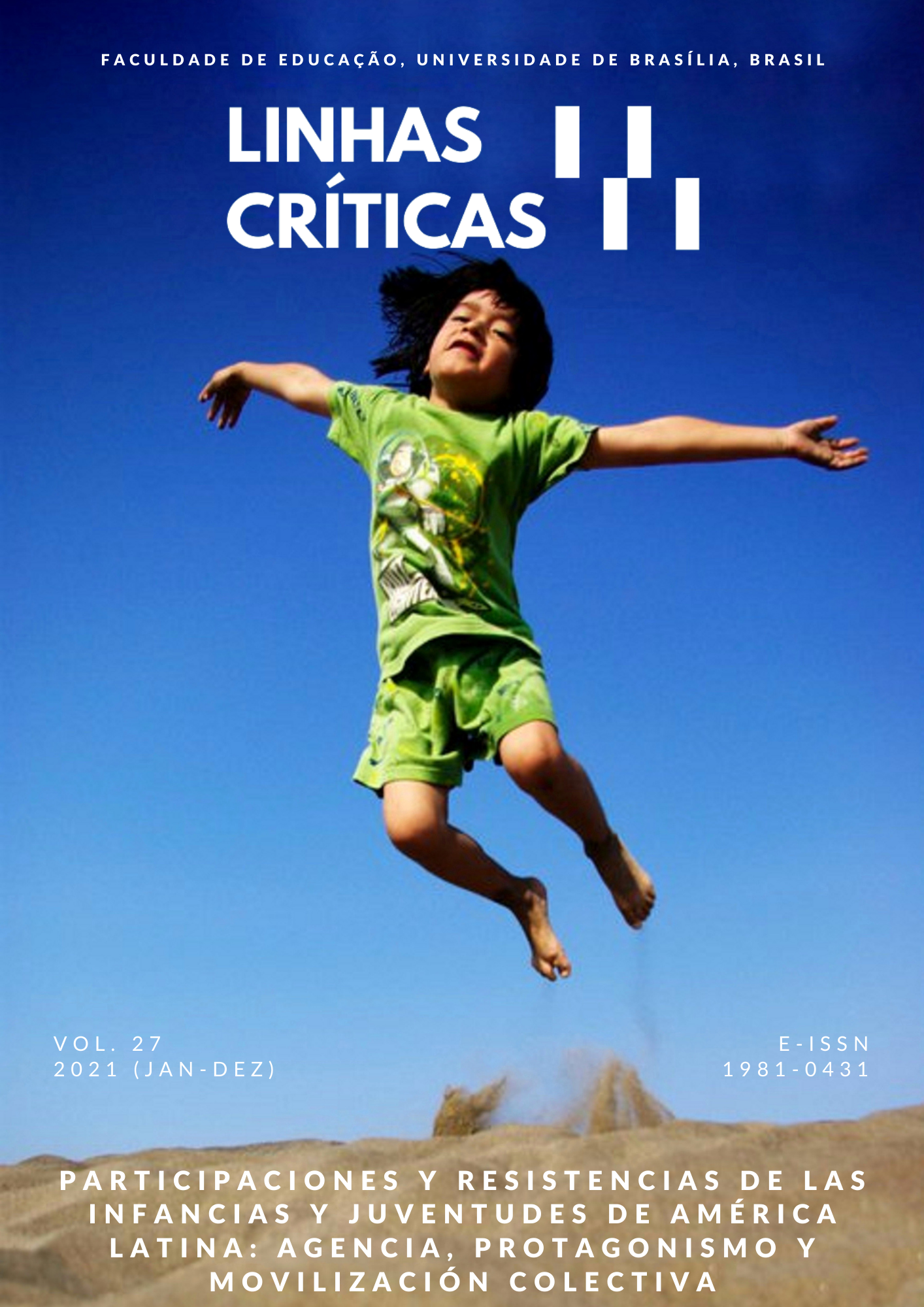A benjaminian analysis of the narrative interview with teachers
resuming the experience
DOI:
https://doi.org/10.26512/lc.v27.2021.36158Keywords:
Education, Narrative, Experience knowledge, Constitution of the subject teacherAbstract
This article aims to analyze, from the narrative interview of two teachers in the area of languages of the Federal Institute of São Paulo, how they resume the knowledge of the experience from the narration of their life stories, both in the personal and professional spheres. For this, we based on Walter Benjamin's philosophy about the expropriated experience and used the considerations of the (auto)biographical method for data production. Our analyses highlight that the act of narrating allowed them to perceive themselves and others in the process of teacher constitution, as well as the significance of the knowledge departing from experience.
Downloads
References
Agamben, G. (2008). Infância e história: destruição da experiência e origem da história (Trad. Henrique Burigo). Editora UFMG.
Aguirre, J., & Porta, L. (2019). Sentidos e potencialidades do registro (auto)etnográfico na pesquisa biográfica-narrativa. Linhas Críticas, 25, 1-18. https://doi.org/10.26512/lc.v24i0.20077
Benjamin, W. (1992). Rua de Sentido Único e Infância em Berlim por volta de 1900. Relógio D’Água Editores.
Benjamin, W. (1993) Magia e técnica, arte e política. Brasiliense.
Benjamin, W. (2002). Reflexões sobre a criança, o brinquedo e a educação. Editora 34.
Brasil. (2020). Plataforma Nilo Peçanha (Ano Base 2019). Ministério da Educação (MEC). Secretaria de Educação Profissional e Tecnológica (SETEC). http://plataformanilopecanha.mec.gov.br/2020.html
Dominicé, P. (2010). O processo de formação e alguns dos seus componentes relacionais. Em A. Nóvoa, & M. Finger (Orgs.). O método (auto) biográfico e a formação (pp. 81-95). Paulus.
Ferrarotti, F. (2010). Sobre a autonomia do método biográfico. Em A. Nóvoa, & M. Finger (Orgs.). O método (auto) biográfico e a formação (pp. 31-57). Paulus.
Forster, R. (2009). Los tejidos de la experiencia. Em C. Skliar, & J. Larrosa. (Orgs.). Experiencia y Alteridad en educación. Homo Sapiens Ediciones.
Josso, M. C. (2007). A transformação de si a partir da narração de histórias de vida. Educação, 3(63), 413-438. https://wp.ufpel.edu.br/gepiem/files/2008/09/a_tranfor2.pdf
Jovchelovitch, S., & Bauer, M. W. (2012). Entrevista narrativa. Em M. W. Bauer, & G. Gaskell (Orgs.). Pesquisa qualitativa com texto, imagem e som: um manual prático (pp. 90-113). Vozes.
Larrosa, J. (2002). Notas sobre a experiência e o saber de experiência. Revista Brasileira de Educação, (19), 20-28. https://doi.org/10.1590/S1413-24782002000100003
Larrosa, J. (2011) Experiência e Alteridade em educação. Revista Reflexão e Ação, 19(2), 4-27. https://online.unisc.br/seer/index.php/reflex/article/download/2444/1898
Najmanovich, D. (2001). O sujeito encarnado: questões para pesquisa no/do cotidiano. DP&A.
Prado, G. V. T., Serodio, L. A., Proenca, H. H. D. M., & Rodrigues, N. C. (2015). Metodologia narrativa de pesquisa em Educação: uma perspectiva bakhtiniana. Pedro & João Editores.
Additional Files
Published
How to Cite
Issue
Section
License
Copyright (c) 2021 André Plez, Milena Moretto

This work is licensed under a Creative Commons Attribution 4.0 International License.
Authors who publish in this journal agree to the following terms:
-Authors maintains the copyright and grants the journal the right of first publication, the work being simultaneously licensed under the Creative Commons Attribution License which allows the sharing of the work with recognition of the authorship of the work and initial publication in this journal.
- Authors are authorized to enter into additional contracts separately, for non-exclusive distribution of the version of the work published in this journal (eg publish in institutional repository or as a book chapter), with acknowledgment of authorship and initial publication in this journal.
-Authorers are allowed and encouraged to publish and distribute their work online (eg in institutional repositories or on their personal page) at any point before or during the editorial process, as this can generate productive changes as well as increase the impact and the citation of published work (See The Effect of Free Access).



